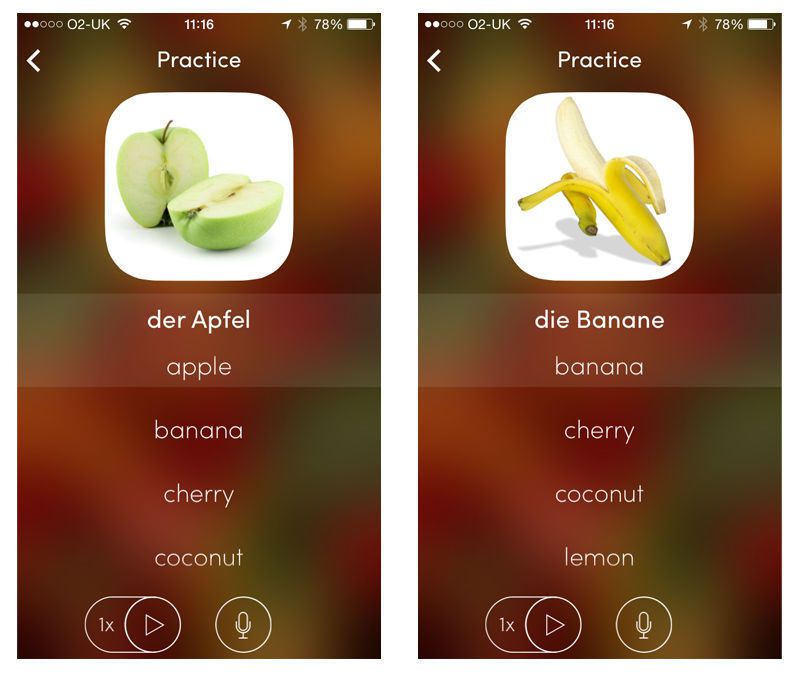Interesting idioms from around the world
No matter what language you’re learning, at some point you’ll probably come across idioms. These phrases, on the surface, seem to mean very little and yet, to native speakers, they roll easily off the tongue without a moment’s thought. In a recent post, we covered Chinese chengyu, idiomatic expressions that each have their own fascinating story. And English is full of strange idioms – ‘to have a chip on your shoulder’, for instance, or ‘to pull someone’s leg’. Very confusing if you’re not very familiar with the language.
Idioms are a tricky part of the language learning process, but well worth it if you can get a few under your belt… 😉 Being able to drop a few colloquial expressions into your speech in the right context will not only boost your confidence, but it’ll also impress whoever you’re talking to!
So here are just a few of our favourite idioms from around the world:
Aus einer Mücke einen Elefanten machen (German)
Literally: To make a mosquito out of an elephant
Meaning: To make a fuss out of nothing
 Énêhpoése ma’eno (Cheyenne)
Énêhpoése ma’eno (Cheyenne)
Literally: The turtle is shrouded
Meaning: It’s foggy
猿も木から落ちる (Saru mo ki kara ochiru) (Japanese)
Literally: Even monkeys fall from trees
Meaning: Even experts get it wrong
Ar gefn ei geffyl gwyn (Welsh)
Literally: On the back of his white horse
Meaning: Full of mischief
Hak mir nisht kin chaynik (Yiddish)
Literally: Don’t chop my teakettle
Meaning: Stop annoying me
Les chiens ne font pas des chats (French)
Literally: Dogs don’t breed cats
Meaning: Like father, like son
chang.sa.rgyag (Tibetan)
Literally: To put up a beer tent
Meaning: To get married
Aquí hay gato encerrado (Spanish)
Literally: there’s a trapped cat here
Meaning: there’s something odd going on
бурхан оршоо бутын чинээ сахал урга (Burkhan orshoo butin chinee sakhal urga) (Mongolian)
Literally: God bless you and may your moustache grow like brushwood
Meaning: Bless you (when someone sneezes)
Avere gli occhi foderati di prociutto (Italian)
Literally: To have one’s eyes lined with ham
Meaning: To be unable to see something that’s plainly obvious
Have you discovered any fun idioms in the language you’re learning? Let us know in the comments!
uTalk Language Challenge – how did we do? [video]
Last month, the EuroTalk team took on a new year challenge – to learn a language using the uTalk app. Some of us did better than others, and Nat was our clear winner, completing the app in just over two weeks.
But the ultimate test was still to come…
7 ways to stay motivated in your language learning
So we’re now a few weeks into 2015, and chances are all the resolutions we made in a fit of great excitement on January 1st are a dim and distant memory. If one of your goals for this year is to learn a new language, here are a few tips to help you stick at it, even when real life gets in the way, and your motivation starts to fade…
Make it fun
You’re far more likely to learn if you’re enjoying yourself. Of course, the best way to pick up a language is to take a trip to the country where they speak it, but that’s not an option for most of us, particularly so soon after the expense of Christmas! So instead, get yourself an app like uTalk or pick up some Flashsticks to post up all over your house (and office, and car…). Or if you’re on a budget, make up your own game. There is no right way of learning a language, and everyone’s different – but wouldn’t you rather be having fun while you study than poring over a grammar book trying to memorise verb endings?
Make it a competition
I’m currently learning German, and know for a fact I wouldn’t be if it weren’t for the uTalk challenge. I don’t really need to learn German – I’m not going to Germany in the immediate future, nor do I have a German mother-in-law to impress – but I fancied trying something new and different. The problem with learning a language just for fun, though, is that it’s very easy to give up without a pressing reason to keep going. The uTalk challenge gave me that reason; I’m a very competitive person, and I wasn’t about to let my colleagues beat me (well, except Nat, who destroyed us all). Knowing that I had to come into work each morning and update my score on the board has kept me motivated, and as a result I now know probably several hundred new words that I didn’t know before.
Focus on the end goal
While there are many people who, like me, decide to learn a language just for the fun of it, there are many more who do it for a specific reason. So if you feel your enthusiasm starting to wane, focus not on learning the language, but on what it’ll mean when you’ve learnt it. Maybe it’s a new job, a new relationship or a forthcoming trip. If you concentrate on what you’re getting from knowing a new language, suddenly putting the time in to study won’t seem nearly such a chore.
Reward yourself regularly
Remembering your ultimate goal is important, but that can sometimes seem far, far away. If you were about to climb Everest and didn’t plan to stop till you got to the summit, you’d probably never start (and who could blame you). So make sure you set yourself achievable ‘in-between’ goals, and reward yourself appropriately when you get there. Personally, I find chocolate to be an excellent incentive. Or you could allow yourself an episode of your favourite TV show, or a shopping trip. Whatever works for you and will keep you motivated to press on.
Set aside time
Life can be incredibly busy, and often it feels like there isn’t enough time to do everything, so learning a language can slip down the to-do list behind other, more pressing tasks. To combat this argument, try setting aside a fixed amount of time each day, or a few times a week, which is only for language learning. Where that time fits into the rest of your schedule is up to you, but the important thing is that nothing else gets in the way. And if you can make use of ‘dead time’ like your daily commute, so much the better – that way you’re not using up hours that would ordinarily be used for other jobs.
Tell other people
I’m a great believer in this one. Tell friends and family that you’re learning a language, and chances are at some point, they’re going to ask you how it’s going. And if they don’t, ask them to. If I know that at any moment someone’s going to demand that I say something in another language, I’m much more likely to keep learning it, just in case. (Of course, when they do ask me to say something, my mind will instantly go blank – but that’s another story.)
Don’t give up, even if you slip up
As with any goal, there are going to be pitfalls along the way. You’d have to be incredibly determined (and slightly superhuman) to never have an off-day or consider giving up. And that’s ok, but the important thing is to pick yourself up after this wobble and keep going. Knowing you’ve overcome a few obstacles is only going to make the moment you have your first conversation in another language that much sweeter, because after all…
Good luck (or should I say Viel Glück)!
Liz
Learning German: a whole new world
So as you may remember, I recently decided to try and learn some German as part of the uTalk language challenge. It’s not a language I’ve ever studied before, and as much as I’m enjoying getting stuck in, it’s also proving quite a bit trickier than I expected.
First, the accent is quite difficult to master. Up to now, my language studies have focused on the Romance languages, particularly Spanish, with its soft, rolling ‘r’ sound and lovely, lilting quality. German is, in contrast, full of hard ‘d’s and ‘ch’s and is a very throaty language, whereas Spanish trips easily off the tongue. There’s a video that surfaces from time to time on the internet, about how everything sounds angry when you say it in German. I don’t necessarily agree with that, but it’s certainly a very different accent to the languages I’ve studied before and is taking a bit of getting used to. I’m pretty sure I’ve been speaking German with a Spanish accent some of the time, which is confusing to say the least.
Then there are the long words. This is actually one of my favourite things about German – the way you can express almost anything simply by sticking words together – but it’s also quite daunting for a learner. Nowhere is this more evident that in the numbers, which look slightly terrifying on first encounter. That said, the way they’re constructed is actually very logical (67, for instance, is ‘seven and sixty’), so they’re not quite as scary as they look. So far, this is my particular favourite – it looks like a tongue twister but still makes complete sense when you break it down into five and fifty:
Telling the time, on the other hand, is proving a bit of a killer. The main reason for this is that German approaches telling the time differently to English. So whereas here in the UK we say ‘half four’ to mean ‘half past four’, in Germany it means ‘half of the fourth hour‘ – or ‘half past three‘. And it gets better – if you want to say ‘twenty five past three’, it translates in German as ‘five to half four’. I’m sure this is perfectly logical to a German speaker, and I know other languages take the same approach, but it’s taking me a little while to adapt to it.
The other problem I’m having is learning the definite articles with nouns – how do you know when to use ‘der’, ‘die’ or ‘das’? Unlike Spanish, which has rules to help you at least take an educated guess at the article, German feels pretty arbitrary – and it doesn’t help that whereas most languages just have masculine and feminine nouns, German throws in a third one (neuter), just for fun. At the moment I’m just going with what ‘feels right’, with varying levels of success, so I think what I’ll need to do is learn every noun with its article, since there’s no other way of figuring it out. That shouldn’t take long…
I’m jumping in headfirst to the challenge, starting straight away with the games in uTalk to see how much I can work out on my own. Then I’m going back and running through the Practice section for each category to make sure I’ve understood everything correctly, and put meanings to words I may not be sure of. (I suppose it’s the equivalent of attempting a conversation with someone and then going away and looking up anything I didn’t understand in a dictionary.) The results are sometimes a bit messy, but I feel like I’m learning faster that way. I’m working through the categories one at a time, in order, but going back regularly to practise earlier ones and make sure I haven’t forgotten everything I’ve learnt. And I’m saving the Recall sections for later – that will be my final challenge and the ultimate test of how much I can remember!
Since I have a long journey to and from work, I’m making use of my time on the train to learn, and so far it’s not going too badly…
Who else is taking the uTalk challenge? How’s it going? Everyone learns differently, so we’d love to hear how you’re approaching the challenge.
And if you’d like to take part in the challenge, it’s not too late – just drop us an email to get involved!
Liz
Why I’m learning German in January
In a few weeks, I’m taking on the uTalk challenge – using the app to see how much I can learn in the 31 days of January.
I’ve been trying to decide which language to go for; there wasn’t any particular one that I needed for a holiday or work trip, so I had the full choice of 100 languages in the app to pick from. Having the opportunity to learn something just for the pure fun of it is great, although 100 is a lot of options for someone as indecisive as I am.
My first thought was to learn Catalan, so I’m prepared for my next trip to Barcelona, whenever that may be. But as I already speak Spanish, it seemed like a bit of a cheat. Although there are significant differences between the two languages, on the whole they’re similar enough to give me an unfair advantage over my colleagues!
So then I decided to use the power of Facebook, and asked my friends which language they thought I should learn. I got various suggestions – Japanese, Navajo, Lithuanian, Welsh…
I was tempted by them all, but in the end I think I’ve finally made a decision. So this January, I’ll be having a go at German.
There were a few reasons for this. Firstly, I never got the chance to learn German at school, because we had to choose either Spanish or German. I’ve never regretted choosing Spanish, which I went on to study at A-Level and university, but from time to time I’ve wondered what might have happened if I’d gone for the other option.
Secondly, German looks quite tricky, and I figured if I was going to take on a challenge, I might as well do it properly. I’m a bit fascinated by the language, too, with its hugely long words; from what I can tell, you can come up with a word for just about anything by sticking others together. And it has some great proverbs.
Also, Germany’s close enough for me to pop over for a long weekend if I want to practise, whereas some of the other options, like Japanese and Navajo, are spoken a bit further afield. Maybe next year…
Finally, one of my favourite words is German. Backpfeifengesicht means ‘a face badly in need of a fist’. And as far as I’m concerned, a language that can come up with a word to describe that has to be worth a look.
Anyone want to join me?
Liz






